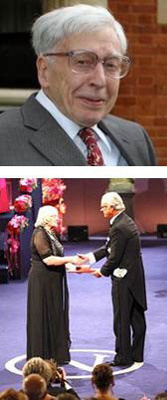
After meeting in 1968, Professor Robert Edwards and Mr. Patrick Steptoe embarked on a journey to overcome types of infertility through the use of laparoscopic surgery by where oocytes, or eggs, were collected and fertilized within a laboratory. This procedure, and the subsequent transfer of embryos, or fertilised eggs/oocytes, were perfected for nearly 10 years until the groundbreaking birth of Louise Brown in 1978.
Two years later, these pioneers of IVF founded Bourn Hall clinic in Cambridgeshire where couples could come to seek advice and treatment for infertility. In the early days of the clinic the teams there also developed cryopreservation methods allowing embryos to be frozen for later use or for transfer to a surrogate.
As IVF became more widely recognized it faced some opposition and controversy but ultimately emerged as a breakthrough medical treatment. In 2010, Edwards was awarded the Nobel Prize in Physiology and Medicine for the development of in-vitro fertilization. He was knighted in 2011 for his services to human reproductive biology.
Bourn Hall not only led the way for the technology of IVF but also has always placed huge importance on the compassionate care of our patients.
Since being founded in 1980, our clinics have facilitated the births of tens of thousands of babies.

Professor Edwards, Co-founder of Bourn Hall Fertility Clinic, known affectionately as “the father of IVF”, was awarded the Nobel Prize in Medicine in 2010.
